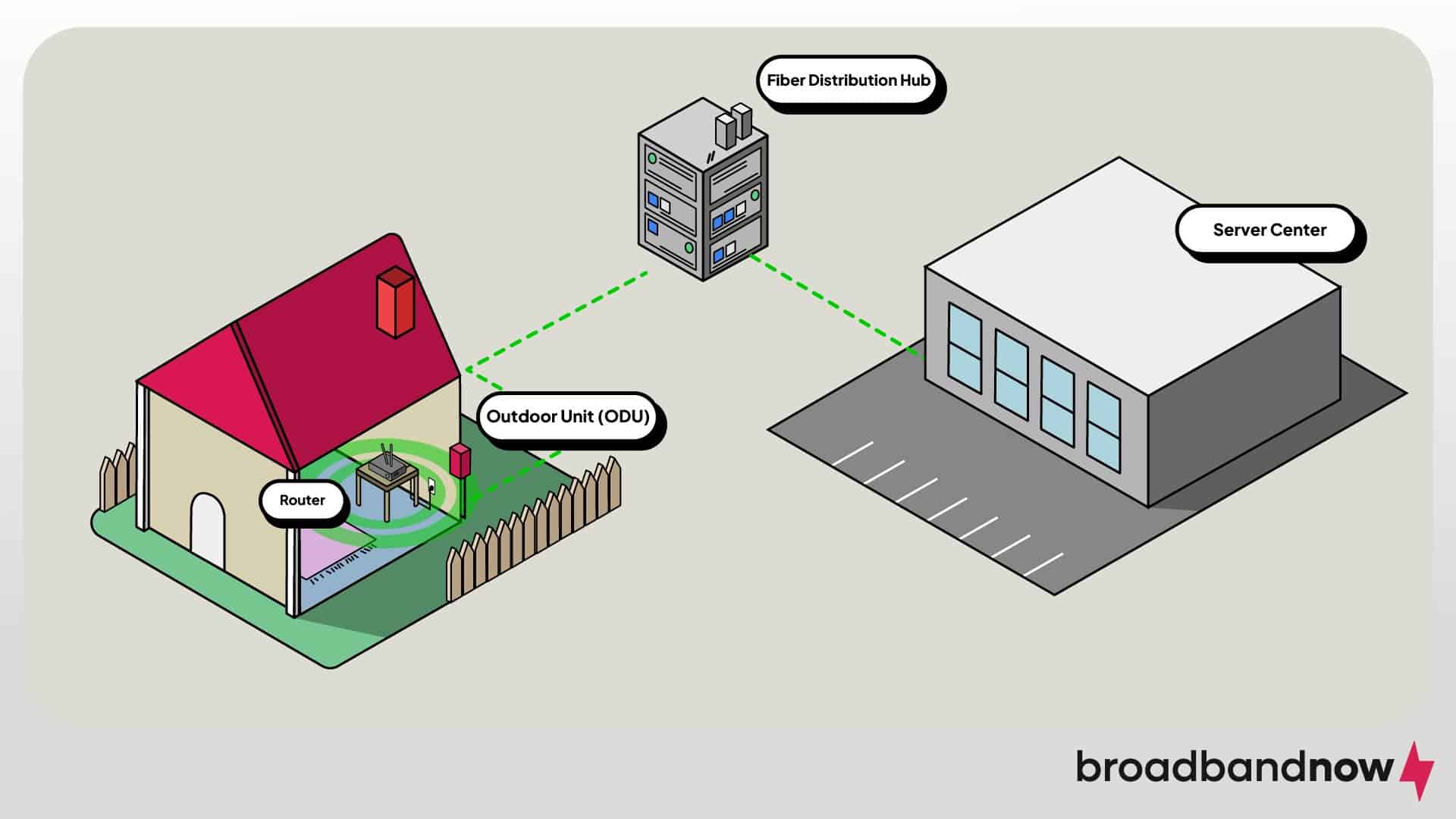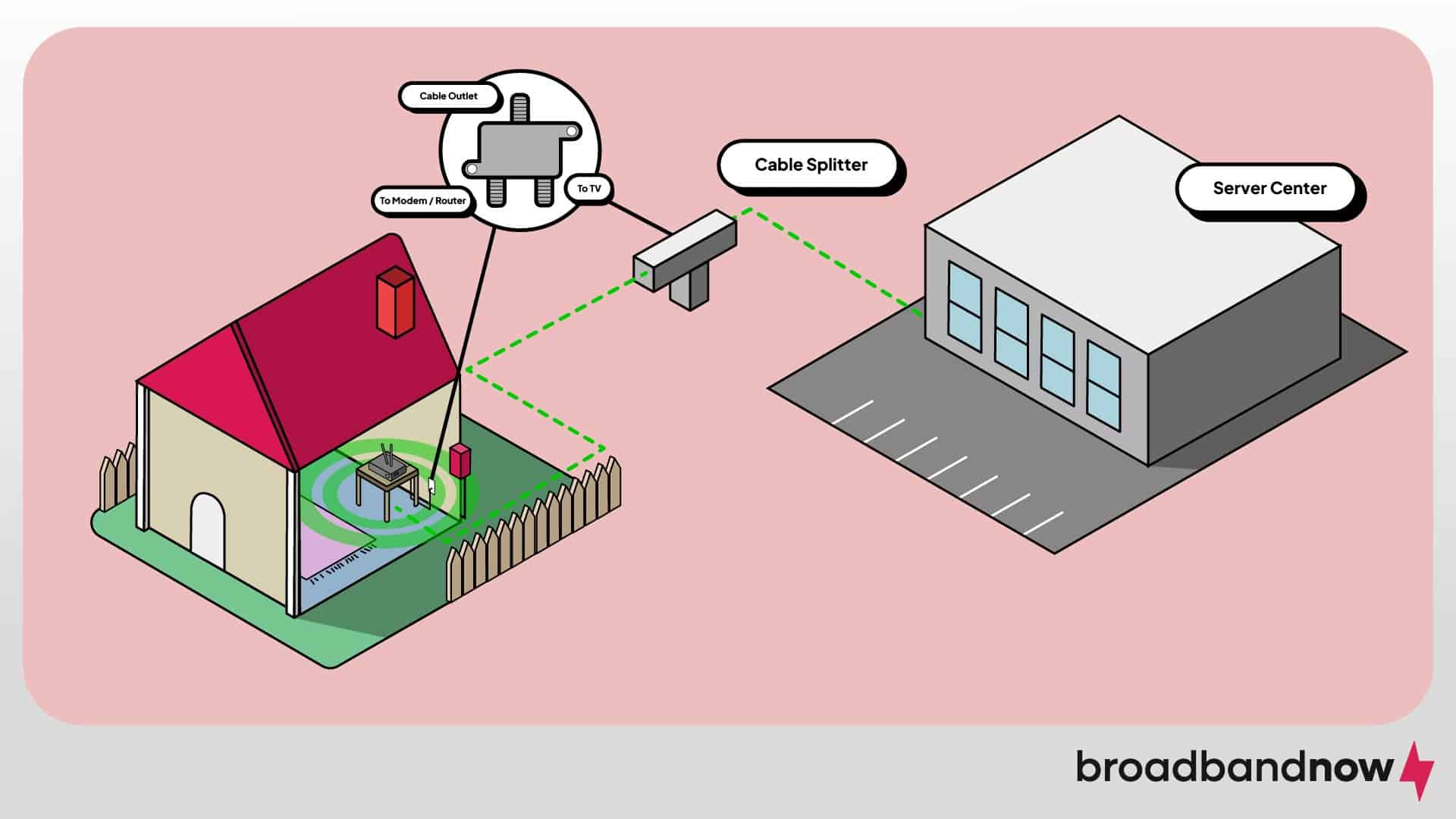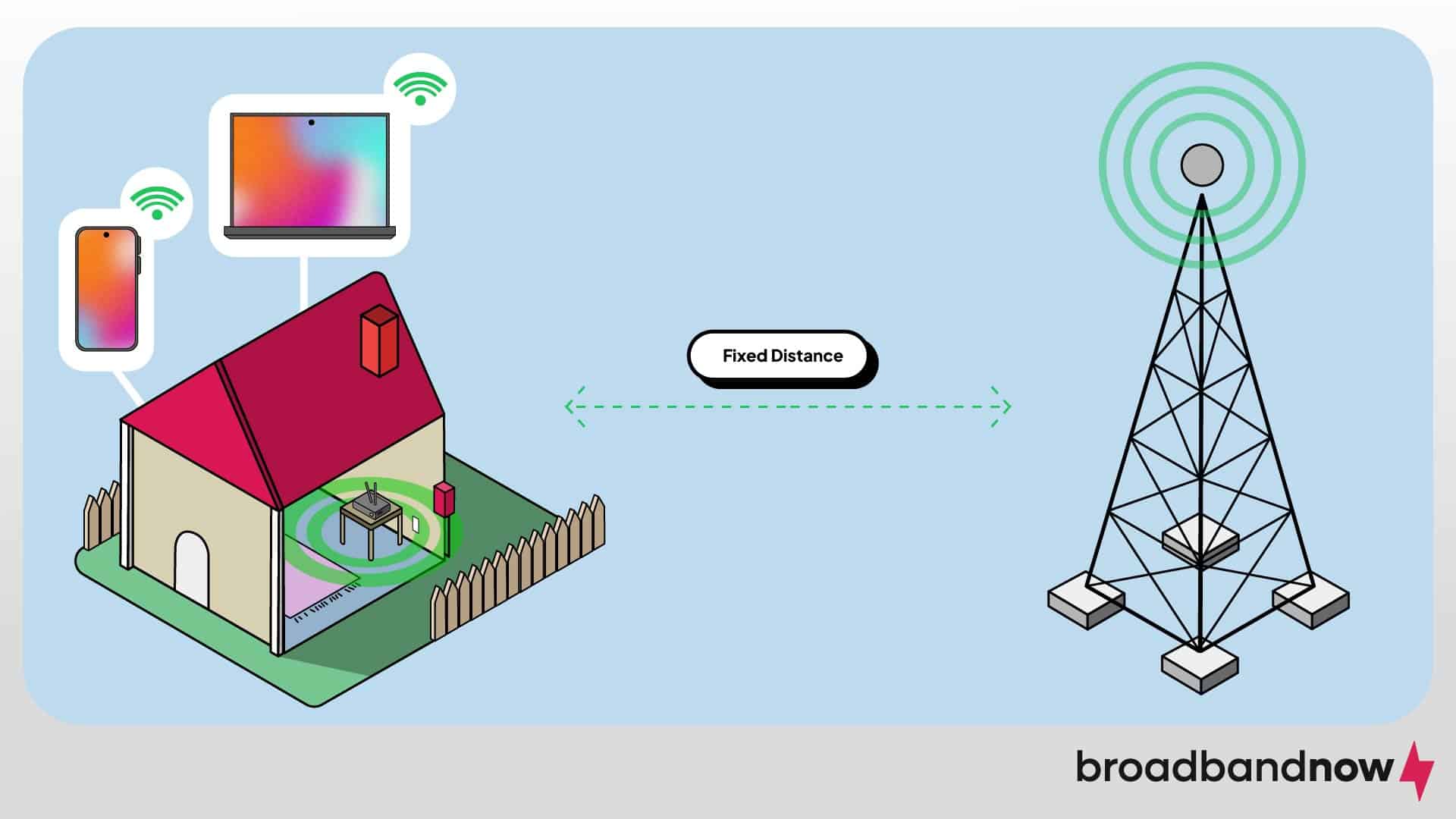Types of Internet Connections Explained: Fiber, Cable, DSL and More
Each internet connection type is best suited for different needs and households.

- Internet service providers offer different connection types with their plans.
- Each connection type has its own pros and cons based on speed, price and availability.
- The best internet connection varies by household and depends on who’s using it and how often.
Internet service providers (ISPs) will be the first to let you know that not all internet connections are created equal. From fiber’s ultra-fast speeds to cable’s extensive coverage, there’s an internet connection type for everyone. But that doesn’t mean you’ll have access to all of them or find a plan that fits your budget. So, which one is the best internet connection for you? In this guide, we’ll go over the most popular types of internet and explain the differences between them.
What Are the Different Internet Types?
What’s nice about internet connection types is that new ones don’t come out every year, so you don’t have to keep track as you would for, say, the newest iPhone model. The internet types you want to keep on your radar are fiber, cable, DSL, satellite and fixed wireless (which includes 5G home internet).
| Internet Connection | Max download speed | Ideal Use Scenarios |
|---|---|---|
| Fiber | 10 Gbps | Gaming, Streaming |
| Cable | 2 Gbps | Streaming, Video calls |
| DSL | 100 Mbps | Video calls, Web browsing |
| Satellite | 100 Mbps | Remote work, web browsing |
| Fixed wireless | 400 Mbps | Web browsing |
Fiber Internet: Almost Faster Than the Speed of Light

What We Like
- Multiple gigabit-speed options
- Symmetrical download and upload speeds
- Secure connection
What We Don't Like
- Limited availability
- Most expensive internet option
| Internet provider | Download speeds (up to) |
|---|---|
| AT&T | 5 Gbps |
| CenturyLink | 940 Mbps |
| Verizon Fios | 2 Gbps |
| Brightspeed | 2 Gbps |
| Optimum | 8 Gbps |
Fiber internet is the fastest internet connection type. Known for its symmetrical speeds, fiber internet provides upload speeds that mirror its download speeds, thanks to the nature of fiber-optic cables. This means that bandwidth-heavy tasks such as downloading and uploading large files are a snap. Companies increasingly are looking to invest in fiber internet, especially those in live production and data analysis, to help speed up the process of their day-to-day operations.
I’m a huge fan of downloading and uploading files to my computer in seconds, but I wish it didn’t come at a steep cost. Fiber may offer the fastest internet, but it’s also the priciest. It also has limited coverage, so it might be unavailable to a majority of households. If fiber internet is available where you live and you need ultra-fast speeds, it might be worth the investment.
Cable Internet: Not Just for TV Anymore

What We Like
- Gigabit internet available
- Wide coverage compared to fiber internet
- Cost-effective, especially when bundled
What We Don't Like
- Slower than fiber internet
- Gigabit internet can get pricey
| Internet provider | Download speeds (up to) |
|---|---|
| Comcast Xfinity | 2 Gbps |
| Spectrum | 2 Gbps |
| Cox Communications | 2 Gbps |
| Optimum | 940 Mbps |
| WOW! Internet | 1 Gbps |
The next best option — and one of the most popular — is cable internet. What I really enjoy about cable internet is its ability to deliver fast internet speeds over a wide coverage area. This makes it perfect for households that want faster speeds but may not live in an area with fiber internet service. You may also find it bundled with cable TV, which allows you to purchase both internet and TV services at a discounted price.
If there’s one drawback to cable, it’s that it’s not as fast as fiber. Cable internet plan prices are reasonable but be prepared to shell out some more cash if you want gigabit internet. Otherwise, cable internet is a well-rounded option that’s worth checking out.
DSL Internet: The Last Resort

What We Like
- Reliable internet connection
- Cost-effective
- Wide availability
What We Don't Like
- Slow compared to fiber and cable
- May require phone service
| Internet provider | Download speeds (up to) |
|---|---|
| CenturyLink | 100 Mbps |
| Verizon | 15 Mbps |
Also known as Digital Subscriber Line, DSL internet is typically available in rural areas or spots where fiber and cable aren’t available. Unlike fiber or cable, DSL internet is delivered through copper telephone lines. It may not be as in-demand as the other types, but DSL is considered one of the most accessible internet service types in the country, offering nearly complete coverage.
Despite its broad availability, DSL internet speeds can’t compete against gigabit titans fiber and cable. It’s extremely slow, even more so if your plan includes a data cap. If you plan on using DSL as your primary internet service, make sure you’re as close to the DSL provider as possible. You’ll likely experience even slower internet speeds if you’re not within close proximity.
Satellite Internet: Out-of-This-World Service

What We Like
- Quick and straightforward setup
- Generous data caps
- Available in rural areas
What We Don't Like
- Slow internet speeds
- Up-front equipment fees
| Internet provider | Download speeds (up to) |
|---|---|
| Viasat | 150 Mbps |
| Hughesnet | 100 Mbps |
| Starlink | 400 Mbps |
Satellite internet is one of the few providers that provide internet to rural areas, regions of the country that typically don’t have access to fiber or cable service. Similar to DSL, its internet service offers near complete coverage across the country. How does it work? Remote satellites connect with nearby signal towers to create an internet connection for satellite internet users.
Unfortunately, the surge in cable and fiber internet’s popularity has caused a decline in satellite internet for cities and suburban areas, so very few still exist today. Satellite internet speeds are much slower than cable and fiber, and not nearly as cheap. Satellite internet users wishing to upgrade their internet plan should prepare themselves for a hefty price jump.
Fixed Wireless Internet: Signals on the Go

What We Like
- Decent internet speeds in a pinch
- Good local customer service
- Vast coverage, especially in rural areas
What We Don't Like
- Some plans are costly
- Weather can negatively affect signals
| Internet provider | Download speeds (up to) |
|---|---|
| AT&T | 300 Mbps |
| T-Mobile | 133-415 Mbps |
| Verizon | 300 Mbps |
Fixed wireless internet has become more popular since many people are looking to stay connected even when they’re away from home. With wireless connection via cell signal towers, it’s possible to get good internet on the go. It also doesn’t require phone or cable lines, and the speeds are almost as fast as regular cable internet. Fixed wireless plans are budget-friendly as well, usually providing basic internet services at a low price.
The convenience, however, comes at a cost — a heavy one. Fixed wireless is cheap through some providers, while others offer it at a much higher price. Wireless signals are also prone to weather conditions such as rain or fog, affecting the quality of your connection. Keep that in mind when considering fixed wireless internet for your home.
Which Internet Type Is Right for Me?

So, which internet type is right for you? The best answer is: It depends. Several factors need to be considered when deciding which internet connection is ideal for your household. You’ll want to know how many people will be using the internet, and how often they’ll be using the internet. You may fall into one of several categories:
Gamers and Streamers
Online gamers may frequently install games (and sometimes reinstall games, if they quit playing for a while). If you or anyone in your household is into live-streaming, that may require an intense amount of bandwidth to ensure your streams are lag-free with little to no buffering. The same applies to anyone who is a fan of streaming shows and movies, especially on multiple devices.
Digital Hobbyists
Whether you love capturing memorable moments through photography or enjoy fine-tuning cinematic videos, hobbyists may find that using a faster internet connection will help them upload and download content more quickly. Video, audio and image files need more time to process, depending on their size and quality, so a fiber or cable connection can help shorten long wait times that might result from other, slower internet types.
Remote Workers
Many people now live a work-from-home (WFH) lifestyle. Remote work almost always requires using the internet to process documents, conduct voice and video calls, and send and receive emails. Unlike bandwidth-heavy tasks like gaming and video editing, remote work tasks are a lot lighter, so fiber internet isn’t required. It may be worth looking into cable internet if you still need gigabit internet, especially if your household regularly uses the internet.
Web Surfers
Light internet users, such as web surfers, may only sometimes or seldom use the internet. Scrolling through webpages or conducting research through web browsers doesn’t require as much bandwidth as running a full application on your PC or phone. If your household consists of light internet users, a DSL or fixed wireless internet may be sufficient.
Frequently Asked Questions About Types of Internet Connections
What is the best internet connection?
The best type of internet connection depends on how you’ll be using it. Online gamers will benefit from fiber internet, while casual web surfers can get away with DSL or satellite internet.
Which internet type is the fastest?
Fiber internet offers the fastest internet speeds on the market because it can deliver gigabit and symmetrical speeds. If fiber internet is not available in your area, cable is the next best option, as it provides a balance of coverage and speed.
How do I know what my connection type is?
Check what type of device you’re using for your internet connection. Fiber internet is usually delivered via fiber-optic or Ethernet, while satellite internet requires a satellite dish.
Which internet type is the most reliable during weather outages?
Generally, wired internet types like fiber, cable and DSL are the most resistant to weather outages. This means that even under harsh conditions, you’ll still be able to connect to the internet since you’ll be connecting through cables.
Which internet type is the best for rural areas?
For rural areas, satellite and fixed wireless internet are the best options. They offer greater coverage at the cost of internet speeds. If fiber and cable internet aren’t available in your area, satellite or fixed wireless internet is a great option.
Which internet connection is the most affordable?
The cheapest internet connection varies by location and availability. Some areas offer affordable cable and fiber internet plans — cheaper than DSL — while others have limited options, such as satellite, which aren’t always the most affordable, even though it’s more accessible.